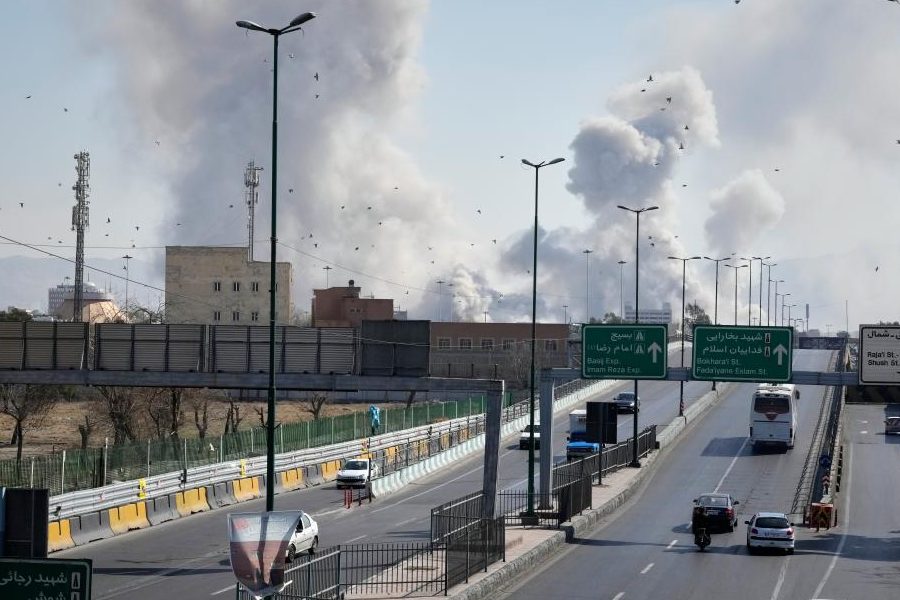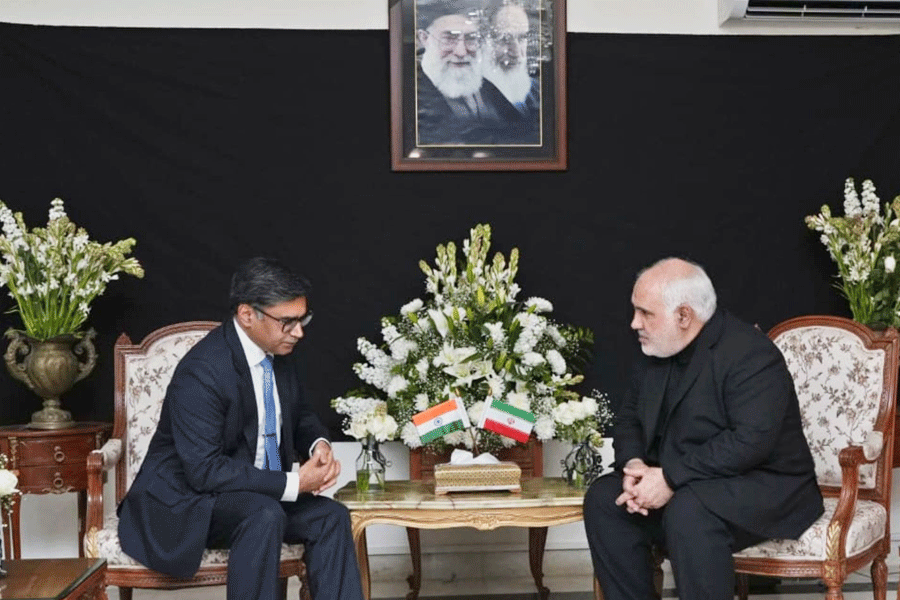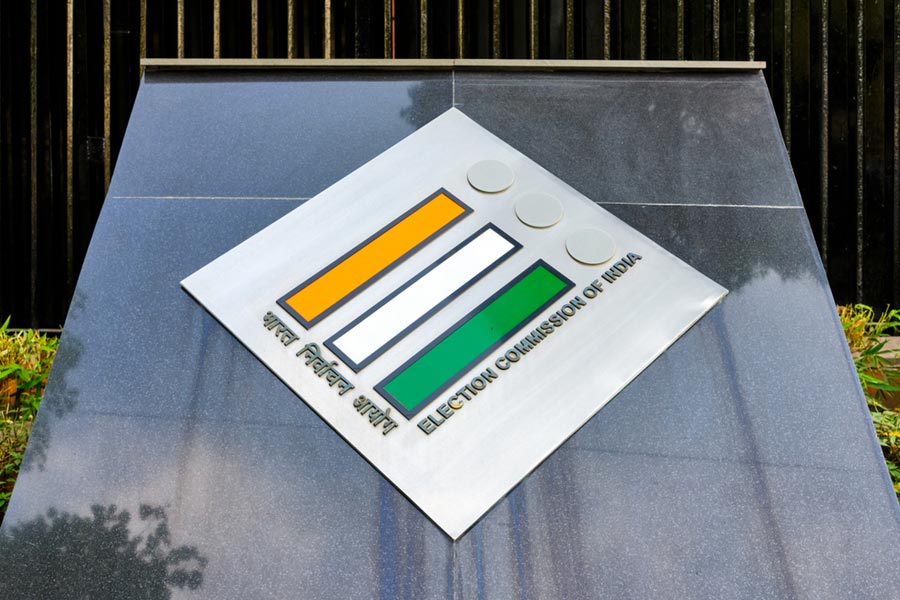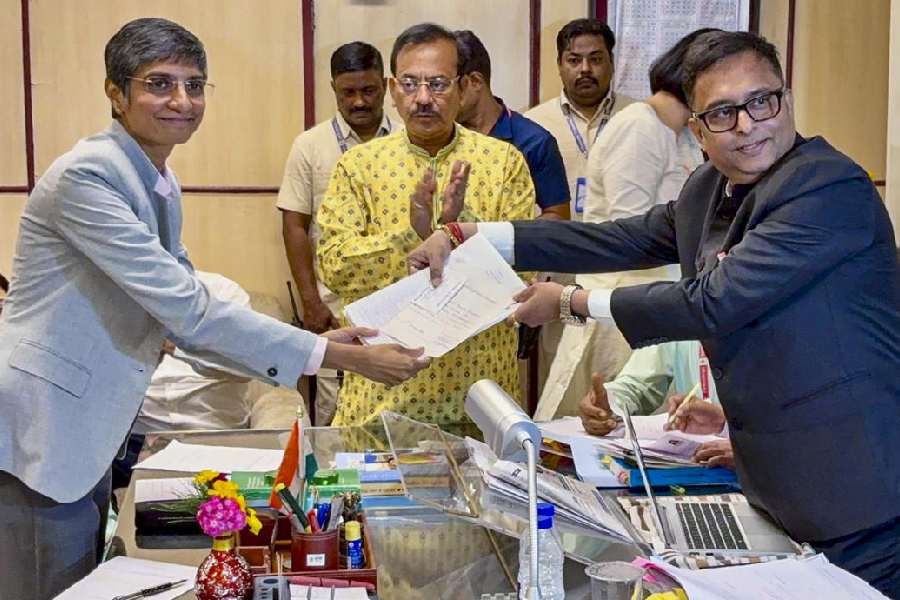 |
| India’s admission into the six-nation grouping could happen before Narendra Modi’s US trip |
New Delhi, Aug. 5: India is preparing to join the influential Shanghai Cooperation Organisation (SCO) strategic grouping, currently led by China and Russia, just days ahead of the Prime Minister’s September visit to the US where his bonhomie with Moscow has already triggered unease.
The SCO has informed New Delhi that it plans to approve documents making India a full member at a September 11-12 summit in Dushanbe, Tajikistan, senior officials have told The Telegraph.
Iran, Pakistan and Mongolia will join India as new members of the grouping, now made up of Russia, China, Kazakhstan, Kyrgyzstan, Uzbekistan and Tajikistan.
America views the SCO as a potential post-Cold War counter-balance to Nato, and Beijing and Moscow have accused Washington of trying to split the grouping. Unlike Nato, the SCO has so far not engaged in military action beyond joint exercises.
India and the three other nations on the cusp of joining are currently observer states at the SCO, and China had till now been ambivalent about offering full membership to India despite Russian backing for New Delhi.
However, keen not to alienate the new Indian Prime Minister, China joined the other members to back the expansion move at a meeting of the grouping’s foreign ministers on July 31.
Indian foreign minister Sushma Swaraj is expected to travel to Dushanbe for the September meeting where India’s membership will likely receive a formal stamp of approval.
If the new members’ formal induction is completed at Dushanbe, Modi may travel in December to Astana, Kazakhstan, where the heads of government of all the SCO’s member states will meet, officials said.
“China supports the SCO summit in Dushanbe to complete the legal preparation of the expansion of the SCO members, thus to open up new ways to absorb new members,” a senior Chinese diplomat quoted his country’s foreign minister, Wang Yi, as telling the July 31 meeting.
India has been keen to join the SCO since it first became an observer in 2005. However, tensions within the grouping’s members on the countries to be allowed entry under any expansion had so far prevented the absorption of any new full member.
Over the past two years, as Russia and the US have returned to near-Cold War brinkmanship, both have turned to India as a critical nation whose support could tilt the balance of opinion among the developing countries, which make up most of the world.
The stalemate at the SCO — with China cautious about India’s entry, Russia uncertain about Pakistan’s, and all the members concerned about the implications of fully embracing Iran — suited the US well.
But global fissures have only deepened over the past two years, frequently placing China, Russia and India together against the US — as in Syria and Ukraine, where New Delhi backed Moscow over Washington.
China is also convinced that it has a potential friend in Narendra Modi despite his election speeches critical of Beijing. China had welcomed Modi with open arms three times when he was Gujarat chief minister — at a time Washington treated him as a pariah and refused him a visa.
Chinese President Xi Jinping signalled his intent to pull India closer when he indicated to Modi that Beijing was willing to consider expanding the SCO. This was when the two met on the margins of the BRICS summit in Brazil last month. Xi is expected to visit India in September.
India’s entry into a strategic grouping that will include three nations that America wants to distance from its allies — Russia, China and Iran — will almost certainly upset fence-sitters in the US establishment, already unsure of the fruits of courting India over the past decade.
“New Delhi has given Russia’s aggression in Crimea implicit approval and strongly opposed sanctions on Moscow, calling Moscow’s interests in Crimea legitimate,” Steve Chabot, the Republican chairman of a key foreign affairs panel of the US House of Representatives, told senior members of the Obama administration last month.
The administration officials were deposing before the panel ahead of secretary of state John Kerry’s visit to India for the India-US strategic dialogue last week.
“Can the US trust India to be a reliable partner on significant geopolitical challenges if, for example, we can’t get India’s support on this growing crisis?” Chabot asked.
“And has the Malaysian airliner shoot-down changed India’s attitude at all in this particular area?”
Kerry and the US received the answer to where India would stand on sanctions against Russia during the strategic dialogue when Sushma bluntly said that India’s foreign policy was “not flexible”.
Kerry accepted that he was disappointed but appeared resigned to India’s decision.
“We would obviously welcome India joining in with us with respect to that (the sanctions),” Kerry said. “But it is up to them. It is India’s choice.”











